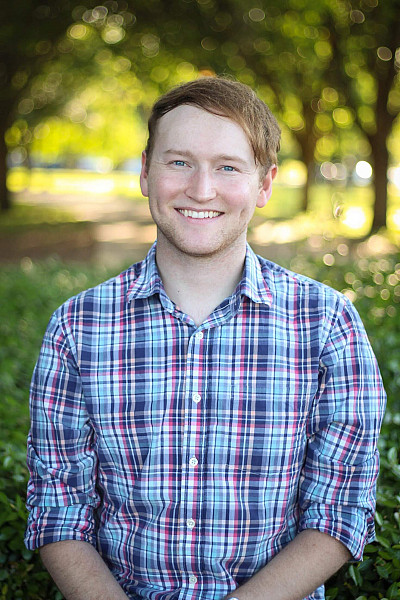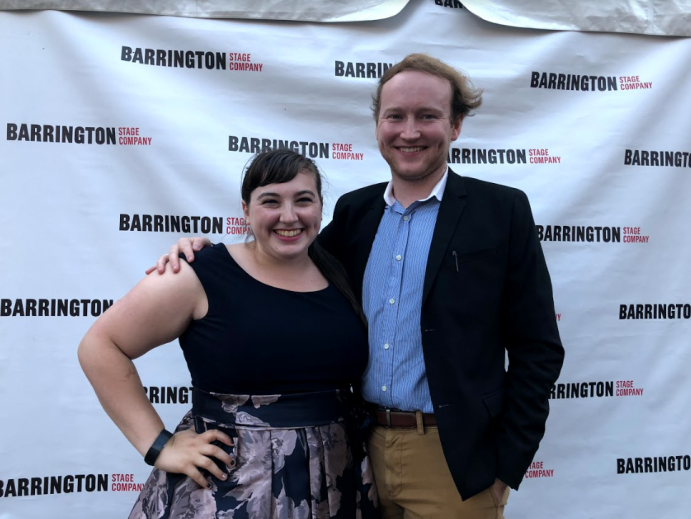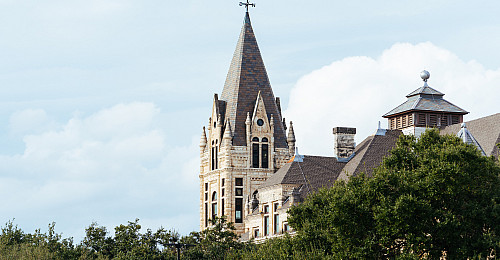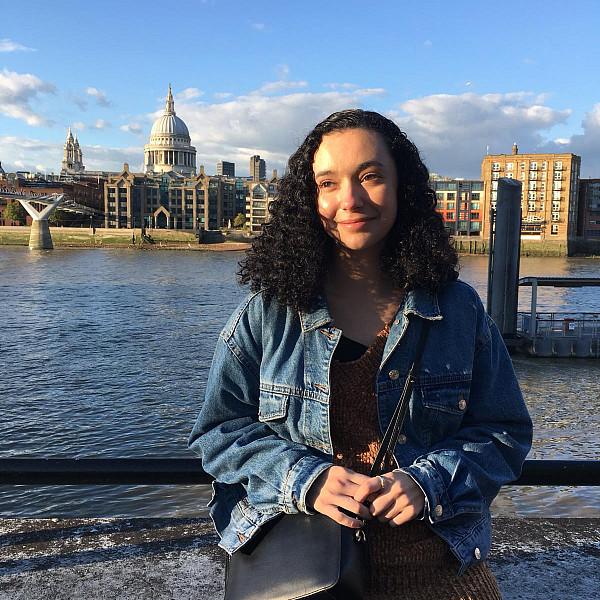News
An Education by Experience
January 31, 2019
January 31, 2019

At Southwestern, the same is true. For recent graduate Worth Payton ’18, who describes himself as “the quietest, shyest person ever” who “didn’t go out at all [his] freshman year,” the University’s greatest impact was on his personal growth. “My second year, I joined a million organizations, and my life became so much better and so much happier.” He joined and later became communications chair, social chair, and finally president of the Kappa Sigma fraternity. In his work–study job with the Office of Intercultural Learning, he assisted study-abroad and study-away students. He served as a resident assistant and as vice president of the Lambda Pi Eta Honor Society. It’s a long (and incomplete) list of accomplishments, certainly, but those titles don’t capture the real significance of those experiences: learning how to come out of one’s shell, connecting with new friends, and building a network of support.
“I think I value my experiences at Southwestern more than my education there,” says Worth Payton ’18. “Not that SU isn’t great educationally—I learned a lot, more than I thought I’d ever learn! But I was really able to connect with not only other students but faculty and staff. None of my friends who went to say UT or A&M can say, ‘I’m going back to Austin to grab dinner with my professors.’”
None of my friends who went to say UT or A&M can say, ‘I’m going back to Austin to grab dinner with my professors.’”
Discovering theatre
Payton’s various extracurricular activities as an undergraduate are a testament to those transformative parts of the Southwestern Experience—the connections between academics and extracurriculars as well as the relationships with supervisors and mentors. A communication studies major with minors in English and theatre, Payton, like myriad other undergraduates, started college imagining he’d become a doctor. He liked his science courses at Southwestern, but he wavered at the idea of committing to the field—and of being in school for many years beyond a bachelor’s. His favorite course was Introduction to Anthropology “because it changed my perception of the world. I thought it was so fascinating. Our professor taught us you can look at other cultures and see things that aren’t rooted in American culture. That really broadened my horizons.” He continued on undeclared for a while, trying out majors such as psychology and English until he settled on communication studies. “I have a cousin who works in the television industry, and she majored in communications at UT, and she has such an incredible, wonderful life. I wanted to be rich and famous in Los Angeles. I was a little vain at that age,” he says laughingly. “I like to think I’ve grown—hopefully more than a little.”
Payton was fascinated by the entertainment industry, but he was a theatre neophyte. Happily, he had the opportunity to partake in the Southwestern London Program during a year when the coursework included history and theatre, an experience that would change his perspective—and influence his future. “I had never experienced theatre. I had never done it in high school and had never gone to plays unless I was forced to go,” he recalls. “But as part of the curriculum, I took two theatre classes and went to a West End play every week. It was incredible! I fell in love with it—absolutely fell in love.”
Associate Professor of Theatre Kerry Bechtel encouraged Payton to pursue his new passion. “It was too late to switch majors, so I decided to minor in theatre, focusing on design, and that was pretty fun,” he recalls. He would devote his communications capstone project to writing about Tony Kushner’s Pulitzer- and Tony Award–winning play Angels in America, which Payton describes as a “brutal” process that he nevertheless loved because he connected so personally to the play and, he says, because it “taught me to look at myself in different ways—it gave me a new perspective on the arts, what they mean to people, and how they influence and change lives.”
He was also enamored of his costume design and scenic design courses, and he explored the latter both at Southwestern and outside school, but eventually, he realized that that aspect of the dramatic arts was not for him. “I really experienced what the life of a designer is, but it wasn’t what I wanted. I like having an eight-to-five or nine-to-six schedule. I’m a naturally routinized person: when I have outside structure like that, it really helps me to excel and perform.” In a sense, then, Payton experienced what many students do: by trying on different hats, he discovered what he did and didn’t like, which helped him recognize an important part of his own personality. That new awareness would influence where he headed next.
Developing an interest in development
During his sophomore year, Payton had also joined the Student Philanthropy Council. As with Dr. Bechtel, who became a friend and mentor to Payton through his theatre classes, Assistant Director of Alumni and Parent Relations Becky Rodriguez became a major supporter of the young communications major. “I consider her like my second mother. She’s a great friend and a great mentor. She always has great advice.”
It was Rodriguez who inspired Payton to learn more about philanthropy, and during his senior year at Southwestern, he assisted the Office of University Relations with stewardship, which focuses on cultivating and maintaining relationships with University donors. Associate Vice President for Alumni and Parent Relations Megan Frisque encouraged him to think about integrating his interests in theatre and development by considering careers in arts administration. Frisque suggested that Payton meet with Laura Sewell, director of the Sarofim School of Fine Arts Administration. “Laura became my third mentor in a way,” he recalls. At that point, he had found a development and arts administration internship at the ZACH Theatre in Austin, and “Laura helped by making a few phone calls. I definitely give her a lot of credit for the beginning of my career. Southwestern is very good about giving you mentors if you’re looking for them.”
Southwestern is very good about giving you mentors if you’re looking for them.
While recording donor gifts and pledges in databases, planning fundraising events, and working on grant applications and communications, Payton quickly grew enchanted with the nonprofit industry. He knew he had discovered a career within the arts that better fit his personality. “It’s how I decided to work in the nonprofit world: being able to work for a creative organization but still have that nine-to-five job, creating an environment for artists to produce their work in.” More specifically, Payton fell in love with development. But as he considered his postgraduate options during his last semester at Southwestern, he worried that he might not be able to find a position in his chosen field. So he consulted his mentors, Bechtel, Rodriguez, and Sewell. Sewell told him, “‘Don’t be afraid if your dreams change as you move on. As you get into this industry, you might find a specific part of it that you can do in other industries.’ It’s the best advice I’ve ever gotten,” he shares. And so Payton knew that although his heart was in the arts, he would also be excited to work in development in any kind of nonprofit. Fortunately, an opportunity was about to present itself that would allow him to indulge his love of both.
Professional development
Nestled among the lush forests and mountain streams of the Berkshires in western Massachusetts is the Barrington Stage Company, an award-winning regional theatre company. There, after graduating, Payton began a development internship, assisting with the company’s daily operations, such as communicating with donors, keeping records on gifts, and even barkeeping at the venue’s donor lounge before and after evening performances. It was an unexpected crash course in catering for Payton, who had no prior food-service experience. But he also had the opportunity to work with colleagues in marketing and communications and education to help research and develop preliminary plans for the company’s upcoming fundraising campaign as well as a new membership plan, something he had also worked on at the ZACH Theatre. Payton enjoyed those projects because he learned how different regional theatres around the nation operated.
But his favorite responsibilities turned out to be grant writing projects. For one project, he researched more than 30 foundations and institutions that regularly give money to the arts, and by reaching out to those organizations, he contributed to fundraising efforts supporting the theatre’s educational programs. The project required making his way through mounds of data. “Reading about those was very dry,” Payton recalls, “but I actually liked it because I read probably read 1,000 pages or more about 990 tax documents and how organizations function financially.” He even waxes poetic about his research: “I actually loved reading those because I love numbers. I think numbers tell a story—what an institution stands for and what their priorities are.” It’s a facet of the arts not many new college graduates might think about, but Payton found a certain romance in the work.
Relying on skills he had honed at Southwestern, Payton was even allowed to write a small-grant application of his own, a rarity for interns. “That was a lot of fun being able to be creative in a more technical manner and coordinating with education. It was my favorite part. [Barrington] was all such a huge, great opportunity.”

The importance of personal time and personal connections
Graduates of Southwestern are known to be “extra”—meaning they tend to be overachievers and involved in multiple organizations on top of their academic coursework. Many continue that pattern after leaving campus, but in the professional environment of Barrington Stage Company, Payton learned what only experience could teach him: that balancing work and personal time is a challenge. “You have to give yourself time to focus on yourself outside of work so that you can be happier and better at work. I occasionally struggled with that sometimes.”
But like his time at Southwestern, the internship in the Berkshires helped Payton fortify those crucial formative connections with people that help us learn and grow. “Outside of what I learned in terms of my career, meeting people last summer was by far the most rewarding experience,” he reflects. “I met some absolutely incredible, phenomenal people who I’ll be friends with the rest of my life. What made the organization function at the end of the day was the community of people there, and that was outstanding.”
After leaving Barrington, Payton fulfilled his lifelong dream of moving to New York City. His childhood best friend was already living there, and she had invited him to be her roommate as he searched for jobs. After only a few months, he began his current position as a development assistant for the Cathedral of St. John the Divine, the mother church of the Episcopal Diocese of New York and the fifth largest church building in the world. Although he continues to work in development, Payton has also rediscovered a love for what was once a potential minor at Southwestern: computer and data science. “While working at the cathedral, I have been working on their database and running reports and such. I have found that I surprisingly like playing around with data,” he says. So Payton enrolled in a data science certificate program last fall and continues to take courses now. “I have always been a person with many interests, which is why I am glad I went to Southwestern and was able to experience a liberal arts education. It really helped me foster basic interests outside of what I was used to, and those basic interests are turning into a completely different career than I ever thought I would have. … I’m having the time of the life while keeping up my education in ways that I never thought I would. I’ve learned so much about myself, my career, and what I want out my life in only a short amount of time.”
Experience has also taught Payton that failure is not an end point. “It’s not the worst thing in the world to fail something. My first semester, I failed calculus, but I now get to live in New York City, and I absolutely love it. Don’t be afraid to fail at the end of the day.”
He says that one of the most significant lessons he’s learned through his Southwestern Experience and postgraduate work is that self-care is essential. “Always make sure to take care of yourself. If you’re feeling stressed and overwhelmed, it’s totally OK to watch TV in your room for an hour. Really recuperate … because your grades will be better. You don’t always have to work, work, work,” Payton suggests. Experience has also taught Payton that failure is not an end point. “It’s not the worst thing in the world to fail something. My first semester, I failed calculus, but I now get to live in New York City, and I absolutely love it. Don’t be afraid to fail at the end of the day.”
In the meantime, Payton continues to cherish the relationships he built while at Southwestern. For him, those human connections remain the most significant part of his college education. “All of them are wonderful, glorious humans, and if you ever need anything, they know everything,” he says lovingly. “Becky Rodriguez, Cheryl Shea, Dyana Shearer, Serena Bettis, Grace Pyka, Maria Kruger, Megan Frisque—they’re all fantastic. I wouldn’t be here without them.”
















